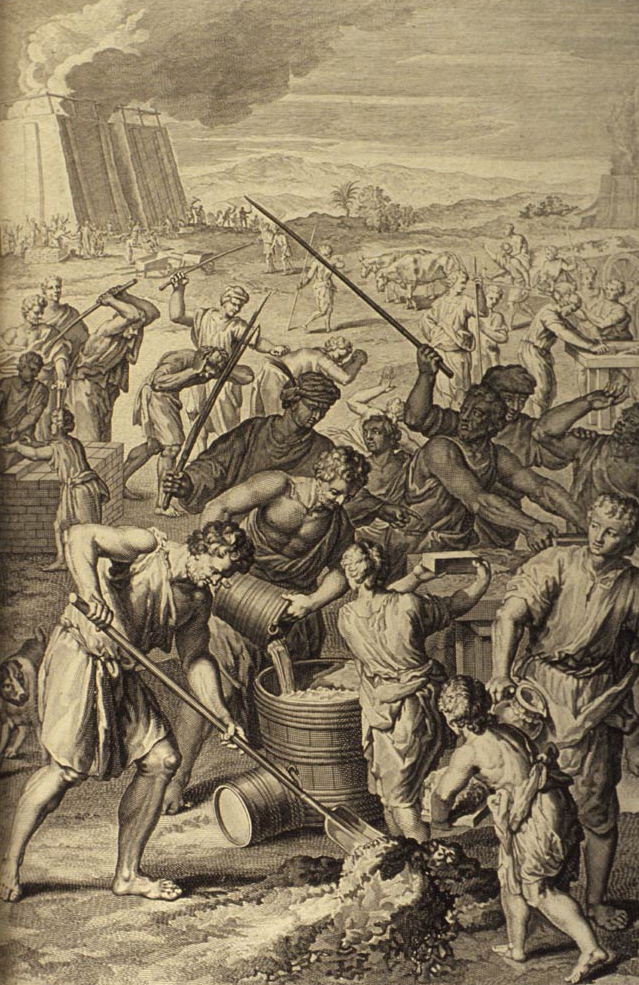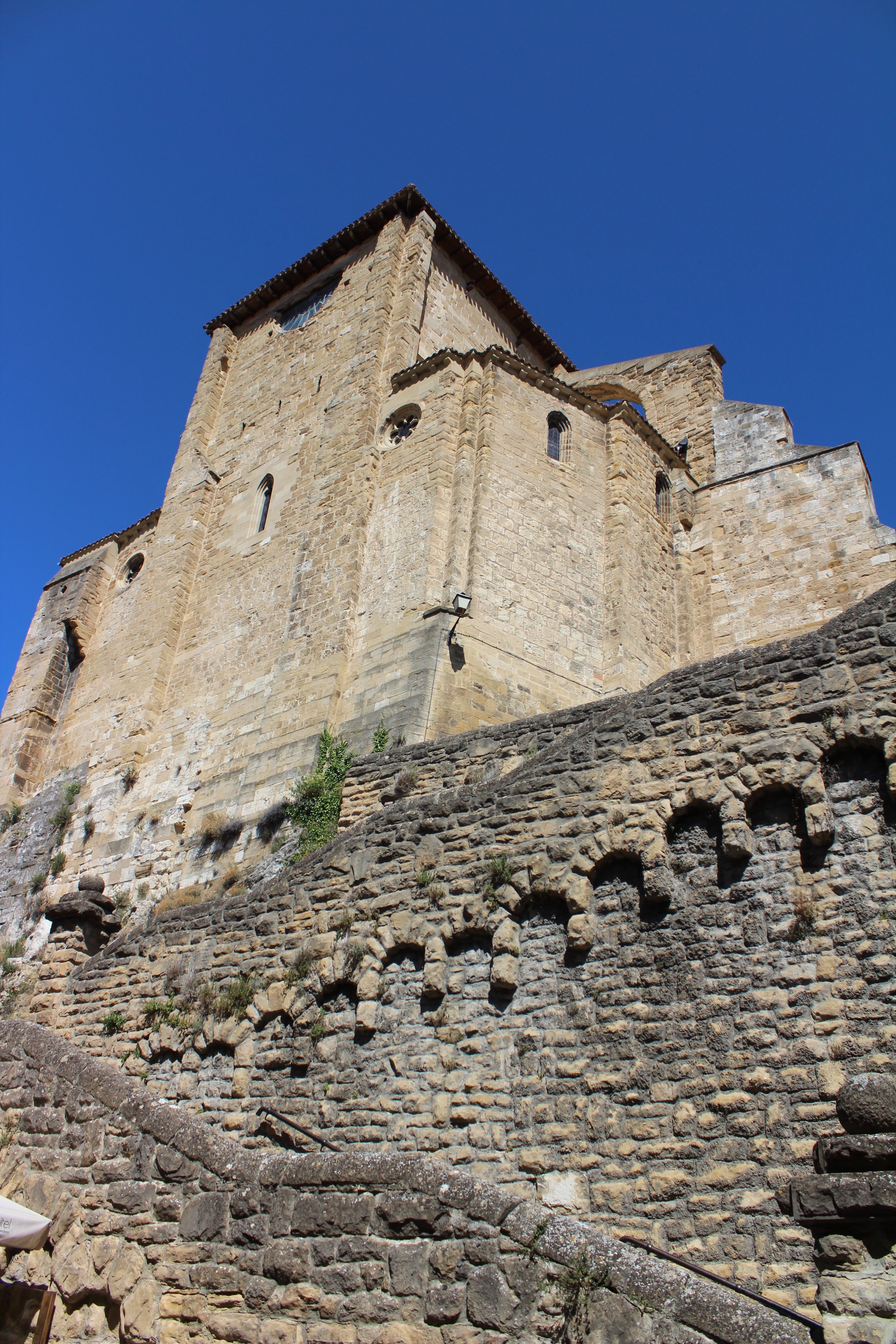Secure Freedom From Oppression

Thousands of years ago, the children of Israel were living in the land of Egypt. Yet the longer they resided there, the worse things got for them. They had been in bondage and slavery to the Egyptians, having no hope or real future, and not a lot of faith in God. Then, at some point during all of this oppression and struggle, they finally cried out to Him to free them. As a result, God heard their cries and raised up Moses from among them to be their deliverer.
Israelites Delivered From Egyptian Oppression
Eventually they were led out from their captors across the Red Sea and into the wilderness beyond it by the power of God. But this was not their final destination, because getting out of Egypt was only the beginning of their deliverance. They had to go 126 miles (about 207 kilometers) more, where they would cross the Jordan River and enter into the land God had promised to them. Under normal circumstances, such a journey across this region would take around eleven days. Sadly though, the Israelites’ passage took over forty years!
They kept longing to go back to the land and people that they had been delivered from! They had forgotten about the persecution, hard times, and oppression that they had endured there daily. All they seem to remember were what few good things they had experienced.
The Israelites Took for Granted the Oppression They Were Delivered From
Why so long for such a simple trip? Well, there are many reasons, but one main aspect stands out—unbelief. From the time they left Egypt and approached the shore of the Red Sea, then all the way across the desert to the edge of the Jordan River, they regularly complained and did not trust in God.
Even though He was with them the whole way and provided for them day and night, they still took Him for granted. They kept longing to go back to the land and people that they had been delivered from! They had forgotten about the persecution, hard times, and oppression that they had endured there daily. All they seem to remember were what few good things they had experienced.
The psalmist declared, “How oft did they provoke [God] in the wilderness, and grieve Him in the desert! Yea, they turned back and tempted [tested] God, and limited the Holy One of Israel” (Psalms 78:40-41).

They Became Fearful When They Refused To Trust God
Even when they were about to cross over into the place God had prepared for them, they grew fearful and did not believe that they could survive. After hearing the negative reports of all but two of the spies that Moses had sent over earlier to survey the land, they responded, “To what place“…shall we go up? our brethren have discouraged our heart, saying, the people is greater and taller than we; the cities are great and walled up to heaven; and moreover we have seen the sons of the Anakims [giants] there” (Deuteronomy 1:28).
When we accepted Jesus Christ into our hearts, we yielded the sinful ways of this mortal world that we were living and entertaining over to Him–just as the Israelites were delivered from the problems, struggles, and oppression of Egypt through the crossing of the Red Sea. We also crossed over into a place free from the oppression and bondages of sin. As a result, Jesus put a new nature within us. Now, instead of leaning toward sin and gratifying the devil, we have a new interest and desire to please God.
As long as we do not choose to put our trust and faith in God, we gravitate toward satisfying our old self, catering to our physical needs and appetites, and thereby allow sin and oppression to reign over us.
There is a Battle Between Our Flesh and Spirit
But this does not mean we are free from wrestling with our old godless self, or ‘flesh.’ There is a battle that continually rages within us between our flesh and our spirit, the part that wants to love God and obey His Word. As long as we do not choose to put our trust and faith in God, we gravitate toward satisfying our old self, catering to our physical needs and appetites, and thereby allow sin and oppression to reign over us. As a result, we also end up wandering around spiritually in the wilderness.
If we continue to do things to keep our ‘flesh’ content, we will never have an intimate relationship with God. He does not want us to entertain this troublesome part of us, but to crucify it, to put it to death, just as Jesus was crucified on the cross for our sins. We will never leave the wilderness and pass through the Jordan River into His Promised Land if we don’t die daily to our old sinful self with its evil deeds, and just believe in God. The Israelites “tempted God, and limited the Holy One of Israel”(Psalm 78:41 emphasis added) and so do we when we murmur, complain, and allow unbelief to be active in our hearts.

God desires for all of His children to live victoriously over the flesh. That means we must live a life of faith, not doubt. The Bible says, “Faith is the substance of things hoped for, the evidence of things not seen” (Hebrews 11:1). We need to believe in that which is intangible. “God is a Spirit: and they that worship Him must worship Him in spirit and in truth”(John 4:24). If we can see it and make it happen by ourselves, then faith is dead. God wants us to trust in Him, even when the results are not visible or when nothing is happening at all.
Our Faith Must be in Christ and the Cross to Have Freedom From Oppression
The good news is, that God did not leave us to our own wisdom and ability to figure out how to successfully overcome our flesh and fight against the enemy when he comes against us. The Lord did not lead the Israelites into the wilderness, and even the Promised Land, and then abandon them. In turn, He will not leave us either. We are able to overcome oppression and the flesh because Jesus already conquered it for us when He sacrificed His life on the cross.
When we place our faith and confidence in Jesus’ finished work over two thousand years ago, we are able to successfully leave the oppression of our spiritual wilderness and go into the land He has promised us.
The Israelites trudged through the wilderness for four decades, in part because they allowed the sinful past from their time in Egypt to reign, and therefore did not fully trust in God. Therefore, let us learn from their example by yielding our flesh and resulting unbelief over to Jesus, putting it to death each day. The Bible says that “The Lord is faithful, who shall [establish] you, and keep you from evil” (2 Thessalonians 3:3). When we place our faith and confidence in Jesus’ finished work over two thousand years ago, we are able to successfully leave the oppression of our spiritual wilderness and go into the land He has promised us.
[Additional image credits: Featured image (when applicable) by Denys Nevozhai on Unsplash; Opening image by Gerard Host from Bizzell Bible Collection, University of Oklahoma Libraries through Wikimedia Commons on Picryl]




